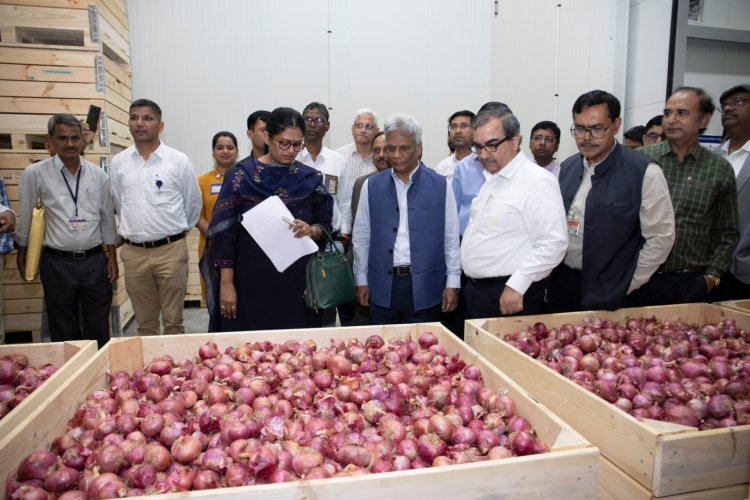BARC’s path-breaking storage technology to help control onion prices

- Using BARC’s innovative technology, onions can be stored for seven and a half months more in special cold storage.
- The unique storage technology can help to minimise post-harvest losses and ensure availability of good quality onions throughout the year.
Rising prices of onions won't bring tears to your eyes any more. A unique storage technology developed by Bhabha Atomic Research Centre (BARC) can help to enhance the shelf-life of onions and other vegetables leading to check the price rise due to supply crunch.
Bhabha Atomic Research Centre (BARC), a unit of the Department of Atomic Energy (DAE), has already achieved great success in maintaining adequate availability of onion throughout the year and reducing storage losses due to short shelf life. BARC has developed integrated operating procedures using radiation technology. With this, onion can be stored for a long time, thereby not only ensuring its availability throughout the year but also its price can also be kept under control by reducing supply shortage.
Onion cultivation is not done throughout the year, so onion farmers and traders also face challenges like lack of weight, rotting due to microorganisms and germination. Due to these reasons, the market price of onion keeps fluctuating while the farmers and traders face huge loss in storage of the crop.
BARC has developed integrated operating procedures through its research and development and commercial trials. Under this innovative storage technology, onions are processed with radiation. Using BARC’s innovative technology, onions can be stored for seven and a half months more in special cold storage.
The unique technology prevents onions from sprouting and thus extends the shelf life by reducing spoilage.
The innovative irradiation technology of BARC can help to minimise post-harvest losses and ensure availability of good quality onions throughout the year. Also, with this, onion prices can be kept under control. Farmers, farmer organisations and consumers can benefit from this on a large scale.
For this, BARC has signed an MoU with the Department of Consumer Affairs, National Consumer Cooperative Federation of India and the Ministry of Consumer Affairs of the Central Government. This involves large scale trials on preservation of onions using irradiation technology with integrated cold storage. In Lasalgaon, Nashik, 1000 tonnes of onion was processed using this technology, which was completely successful on every parameter.
This is a path-breaking step towards controlling food inflation and shows BARC's commitment towards food conservation. This technology has proven to be an effective way to preserve the quality and freshness of onions on a large scale.
Notably, the Agricultural Produce Conservation Center (KRISHAK) located at Lasalgaon has been specially upgraded for the use of this technology. It has a first of its kind integrated onion specific cold storage of 250 tonne capacity, with a controlled humidity of 65%, which is capable of maintaining good quality of radiation processed onions for a longer period. Recently, a Kisan Mela was organised here, so that the farmers could be told about the benefits of radiation technology.
On this occasion, Secretary of the Department of Atomic Energy and Chairman of the Atomic Energy Commission, Dr Ajit Kumar Mohanty praised the tests related to conservation and the organization of the Kisan Mela. Vivek Bhasin, Director, BARC, Mumbai said that the successful large-scale trial of protection of agricultural products from radiation is an important step towards food preservation in India.


















